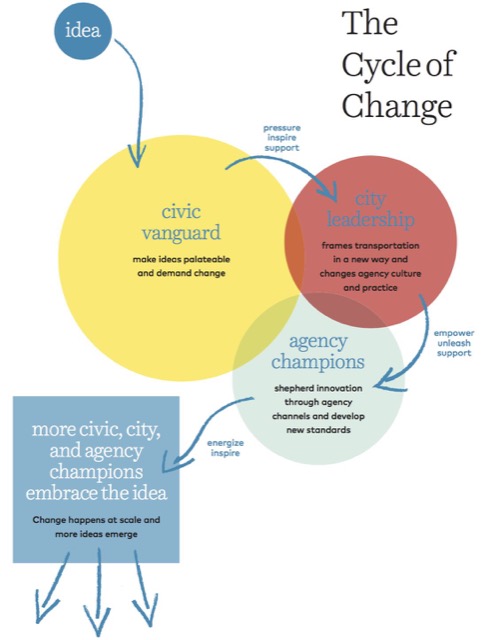“Innovation” means introducing new things. But to be successful, innovators don’t just introduce new things, they introduce things that are cheaper and better than what preceded them. Steam trains were a successful innovation because they were faster and less expensive than horses and wagons. Automobiles were successful because they were faster and less expensive than trains. But if automobiles had come first, no one would have successfully introduced the “innovation” of steam trains.

A New York transit advocacy group called the Transit Center has a very different view of innovation. As expressed in the above graphic from its recent report, A People’s History of Urban Transit Innovation, innovation doesn’t mean finding new things or finding ways of doing things better for less money. Instead, it means selling the public on old things that are more expensive and less effective than what we already have.







